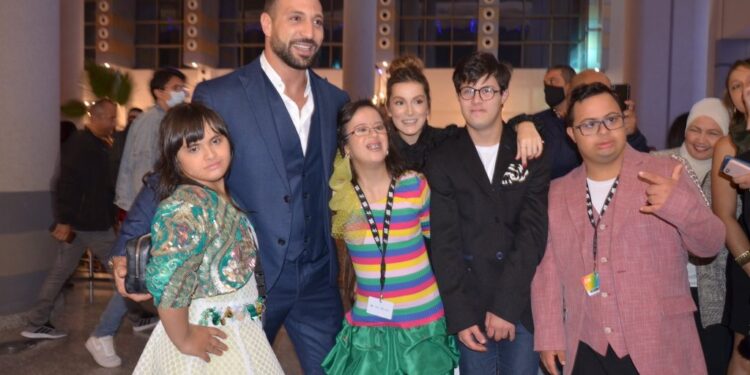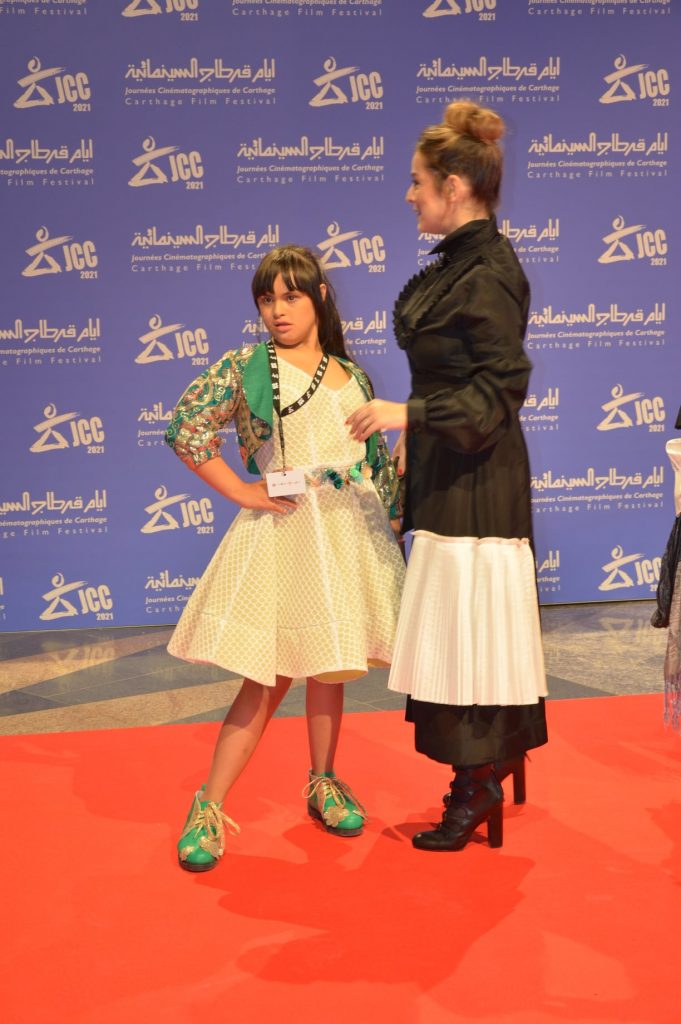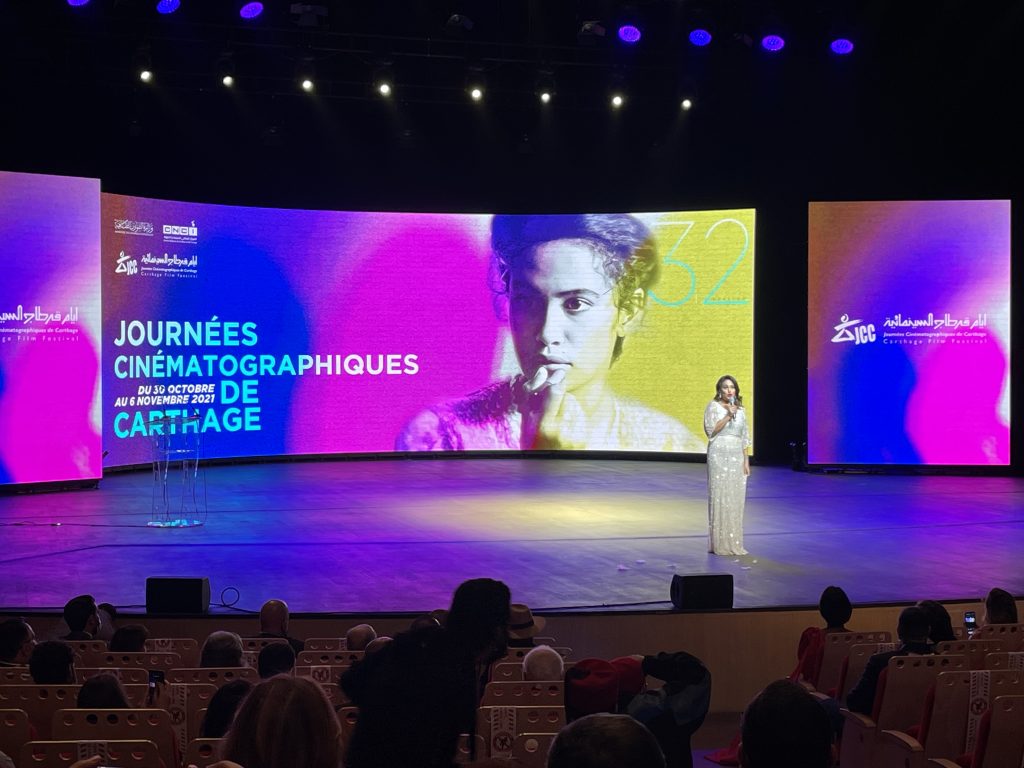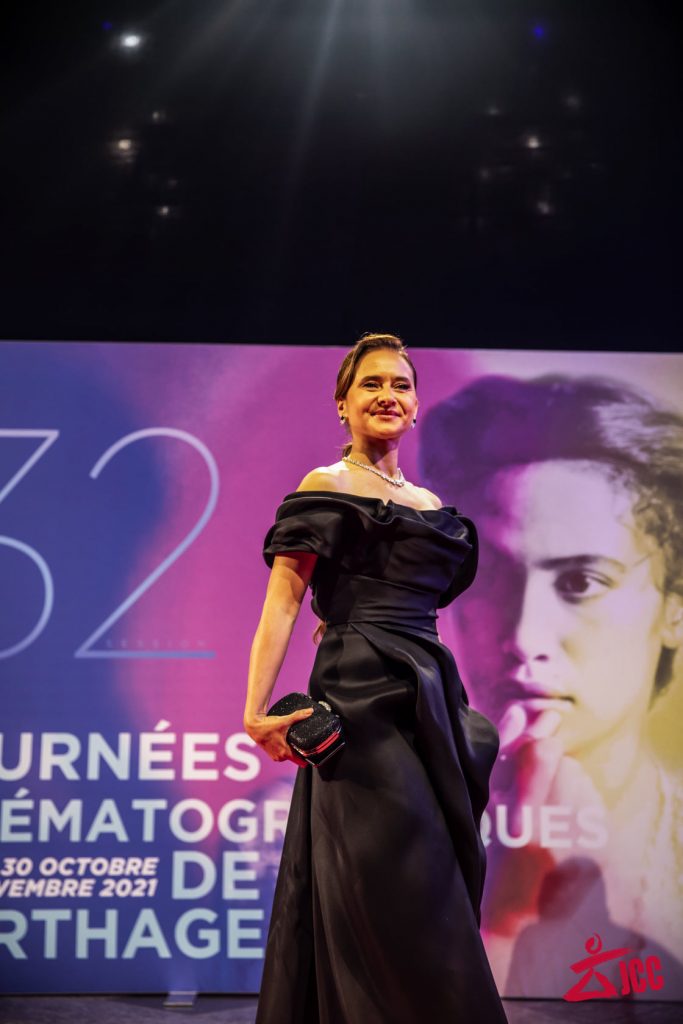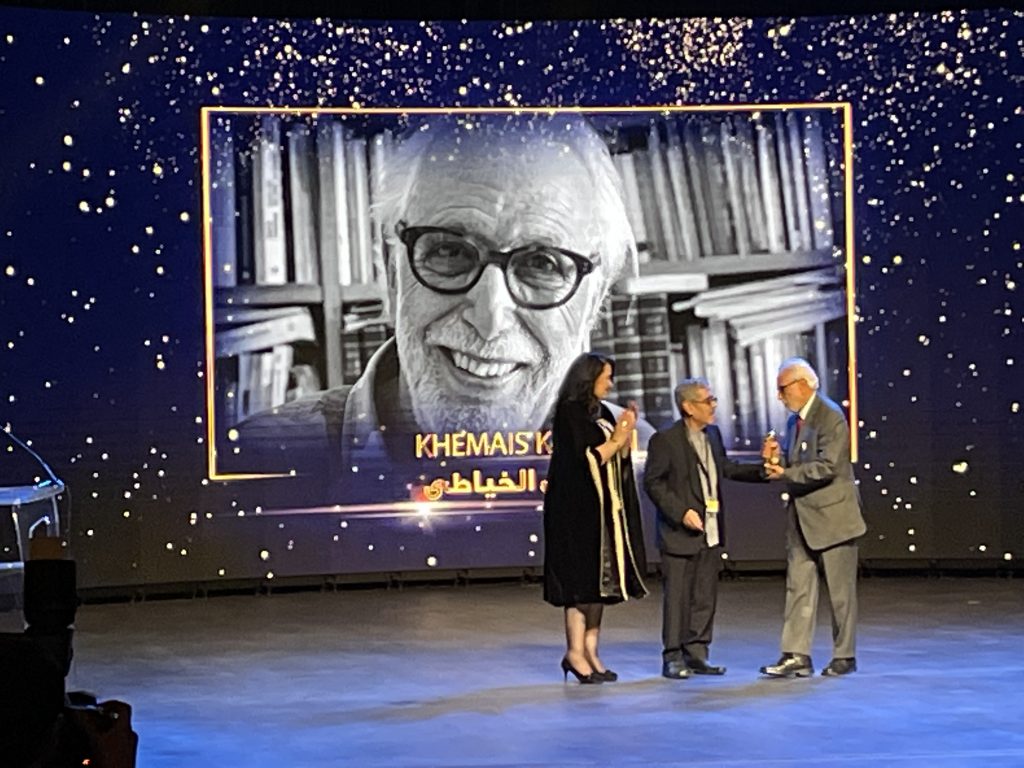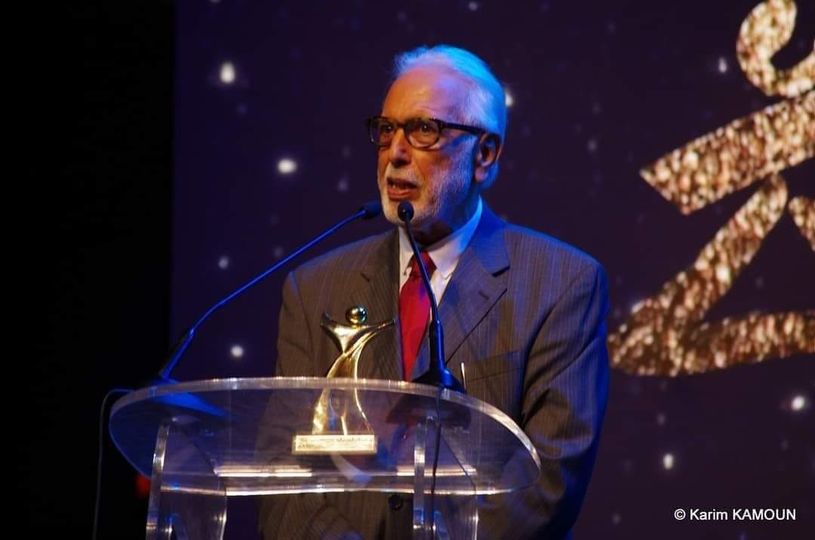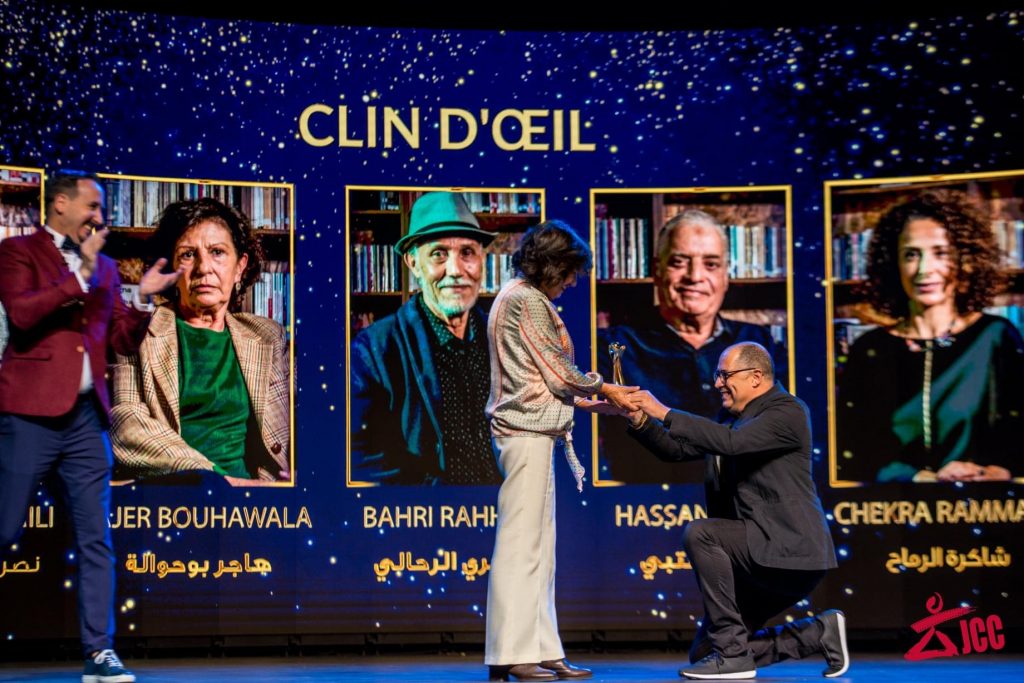Saturday evening took place the opening ceremony of the 32th Edition of Carthage’s cinematographic days (JCC), which will take place from October 30 to November 6, 2021, With the usual speeches, but a master of ceremonies, Néjib Belkadhi, with a very particular style and humor, a little incisive sometimes (he only talked about in Tunisian, but foreign guests were able to benefit from the simultaneous translation in French and in Arabic, with helmets which were provided to them). A relatively classic ceremony, but marked by very moving moments.
First of all during the red carpet. Indeed, in collaboration Arc en Ciel Association And Tunisie Telecom, official partner of the festivala great action has been organized: allow children with Down’s syndrome to realize their dream of rubbing shoulders with their favorite stars during this exceptional event.
This is how these children accompanied on the red carpet and in the opera room, Nidhal Saadi, Kamel Touati, Pika, Hichem Rostom and other Tunisian actors.
For this memorable evening, the children were dressed like stars by stylist Hanen Elleuch, who designed them specially for the occasion. The goal being to make this evening, full of emotions, an unforgettable memory for these young people and to see stars shining in their eyes. This is also cinema!
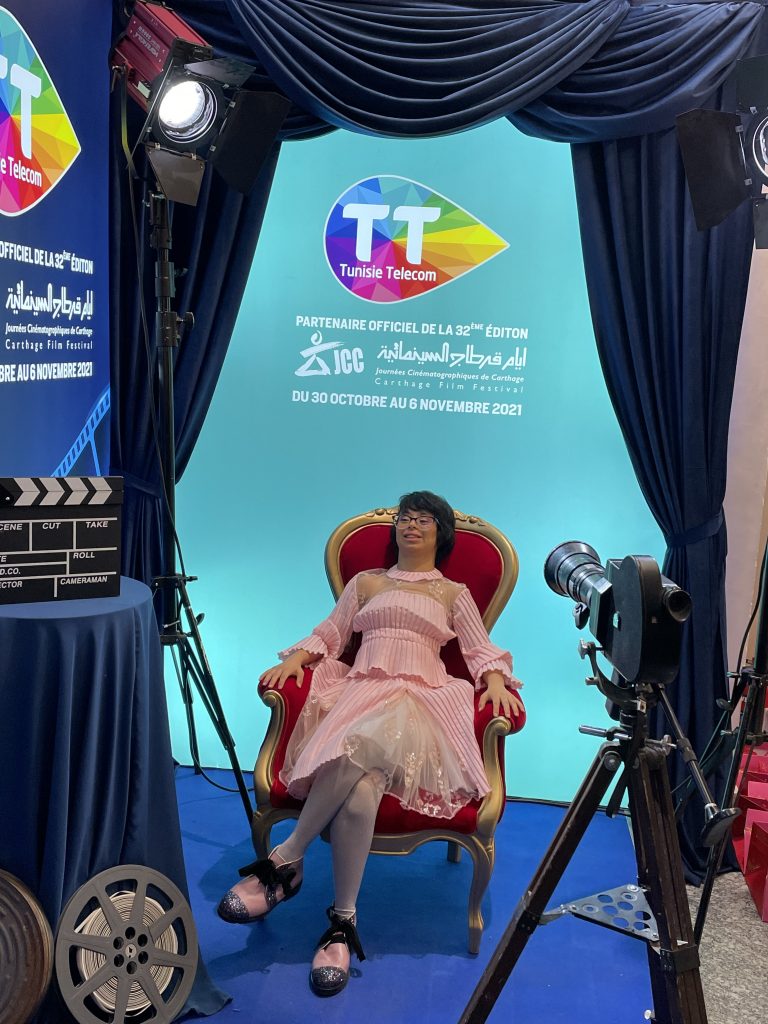
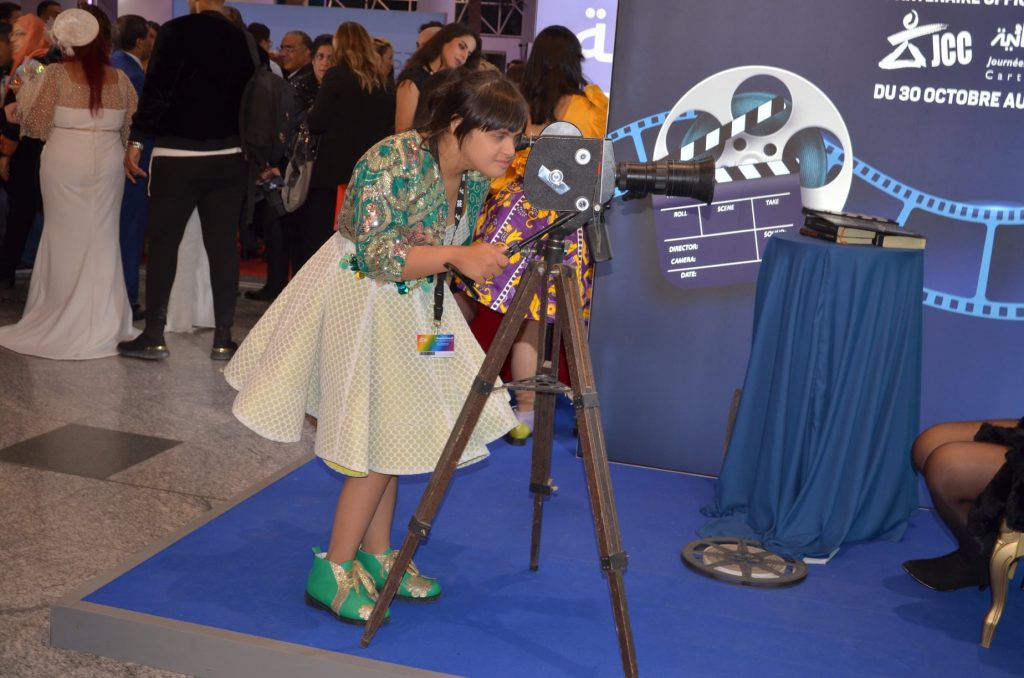
Then, during this ceremony, one of the most moving moments was the tribute to director Moufida Tlatli, who died in 2020. Moufida Tlatli whose film Les Silences du Palais, won several prizes everywhere in the world, notably the Tanit d’Or and the Prize for the best actress for Hend Sabry at the JCC 1994, and the Golden Camera at the Cannes Film Festival.
In 2021, the Silences of the Palace was ranked first in the list of the 100 best films of Arab women of all time. After a video, mainly understanding extracts from the film, Hend Sabry in person appeared on stage where she spoke of Moufida, or rather where she spoke to Moufida. Hend had tears in his voice thanking the one who had changed her life.
Several other tributes marked this ceremony.
Like that of the great Egyptian star Nelly Karim, but which unfortunately seemed a bit sloppy (no presentation of his work to the public, not an extract from one of his films or soap opera, nor nothing), especially since she did not say a word, not even to thank the festival and wink at the Tunisian public. What will we keep in memory of this tribute? Just the stealthy image of a very elegant young woman who went up on stage to take her Tanit and descend. It’s really a shame!
And especially tributes to those who participate in making us dream but that we often forget to quote. I would have liked us to present a long time all those who were honored. For example with short videos, retracing their journey, that all moviegoers, foreign guests and the young generations know who it is and why they deserve a tanit.
As for example Khémais Khayati, film journalist since 1967, founding member of the Revue Bimostrielle Cinemarabe, member of the editorial committee of the weekly Al-Youm Assabeh and editor-in-chief of the Bulletin Le Quotidien des JCC for two years.
Doctor of sociology since 1983, Khémais has taught Arabic cinema and literature at the University of Paris III, wrote several studies and works on Arab cinemas and also participated in the selection committees of the Critics Week (parallel section of the Cannes Film Festival). Why was it not said?
But in addition to all this, Khémais Khayati was among those who made cinema loved a whole generation of Tunisians, including me. In my memories of children and adolescents, he represents cinema. It is his face that I hold TV shows. Without forgetting that Khémais believes in the transmission of knowledge and his passion, and that he encourages all young people so that they can take over.
It was for example Khémais who had made me an appointment for my first interview and pushed me to go there. It was in October 2016 with Hussein Fahmy. The same year, it was also he who at the Cairo Festival, also made me know several Arab filmmakers and criticisms. Thank you Khémais, tribute really deserved.
The highlight of the ceremony was a simulation of a shoot, more precisely a cover of a scene from the film The idol of crowdswith Abdel Halim Hafez, embodied by Bahri Rahali and Shadia embodied by Chekra Rameh. This simulation made it possible to highlight the very important role of several film technicians, such as makeup artists for example (here Hajer Bouhawala), which one never see and that the public does not know.
Very nice tribute to these cinema professionals who participate in making beautiful and good films. Bravo to the JCCs for having thought of them and of having honored them.
Neïla Driss


